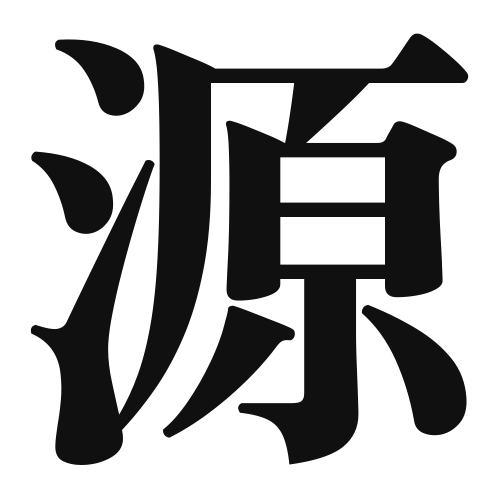1. Overview of Meaning
The kanji “源” (gen) means “source” or “origin.” It refers to the starting point of something, such as a river’s source or the origin of an idea.
2. Formation and Radical
Formation of the Kanji: The kanji “源” is a phonetic-ideographic character (形声文字). It combines the water radical (氵) on the left, indicating a connection to water, and the character “原” (gen), which means “plain” or “field.” Together, they suggest the idea of water originating from a plain or field.
Radical: The radical of “源” is 氵, which is related to water.
3. Examples of Usage
Common Words and Phrases: Some frequently used words that include “源” are:
- 水源 (suigen) – water source
- エネルギー源 (enerugī gen) – energy source
Example Sentences in Daily Conversation:
- この川の水源は山の中にあります。 (Kono kawa no suigen wa yama no naka ni arimasu.) – The source of this river is in the mountains.
- 彼のアイデアの源は古い本です。 (Kare no aidea no gen wa furui hon desu.) – The source of his idea is an old book.
4. Synonyms and Antonyms
Similar Kanji: A similar kanji is “起” (ki), which means “to rise” or “to start.” While “源” refers to the source or origin, “起” emphasizes the action of beginning or emerging.
Opposite Kanji: An antonym is “終” (shū), which means “end.” While “源” signifies the beginning or source, “終” indicates the conclusion or termination of something.
5. Cultural and Historical Background
Connection to Japanese Culture: The concept of “源” is significant in Japanese culture, often associated with nature and the origins of life. It reflects the importance of water sources in agriculture and daily life.
Proverbs and Idioms: One common saying is “源を絶つ” (gen o tatsu), which means “to cut off the source.” This phrase is used to describe the act of eliminating the root cause of a problem.
